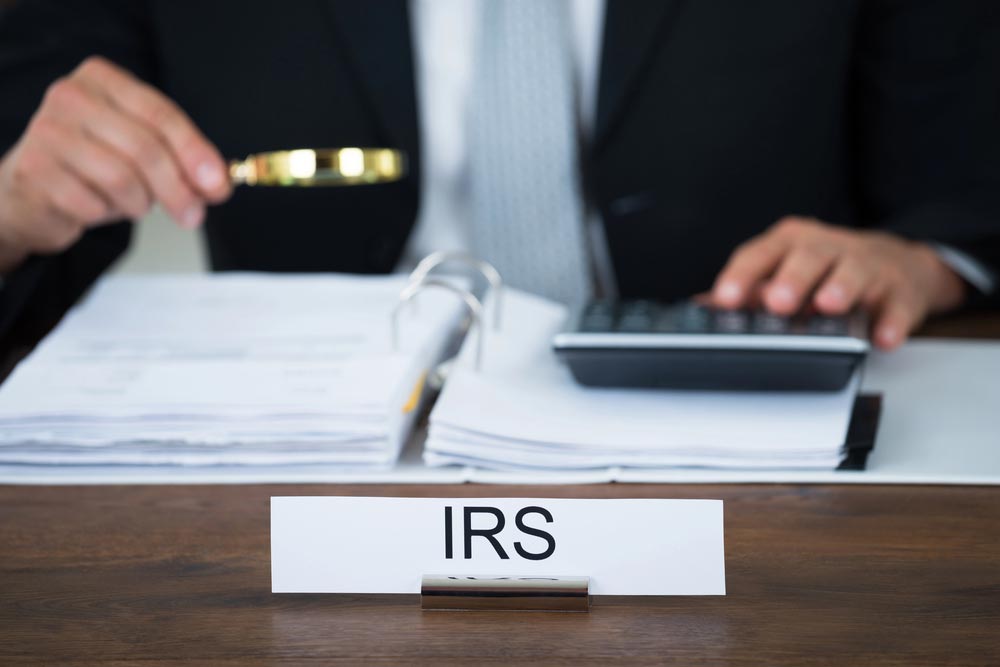The Internal Revenue Service (IRS) goes after taxpayers who are most likely to owe them money. They look for mistakes, omissions, and exaggerations that can trigger an audit. Some taxpayers are selected at random, but most of them are chosen because their computer-based Discriminant Information Function (DIF) scoring system has found one or more red flags. A lot of things can draw unwanted attention from the IRS. In some cases, it can be because you made a mistake. It can also be something that’s completely surprising and beyond your control (such as claiming a certain tax credit or the amount of income you reported).

Here are some of the common IRS audit triggers and how you can avoid them.
#1: Making Too Much Money
Millionaires have a much higher chance of getting audited. This is especially true today because of IRS funding from the Inflation Reduction Act of 2022, which is being used to increase enforcement actions against higher-income taxpayers. But it doesn’t mean you should make less money each year. Just don’t be surprised if the IRS decides to audit your return.
#2: Not Reporting Taxable Income
You’re inviting a response from the IRS if you don’t report all of your taxable income. The IRS gets a copy of all the W-2 and 1099 forms you get from employers and other people who pay you throughout the year. The IRS runs your tax return through a cross-checking program to see if you reported all the income that was shown on those forms. If it finds a mismatch, you’ll get a letter from the IRS that points out the discrepancy. It will also ask you to follow additional procedures for resolving the issue.
This type of correspondence isn’t technically an “audit,” but it can feel like one. It can also lead to a full audit if the IRS doesn’t trust your numbers. Wait until you receive all your W-2 and 1099 forms before you file your tax return. Employers and other payers aren’t required to get W-2 and most 1099 forms sent out until Jan. 31, and most people complete their returns before that day (which can be a mistake). Don’t jump the gun by filing your tax returns before you have all your tax documents.
If you haven’t gotten your W-2 or 1099 form that you’re expecting or got an incorrect form, reach out to the employer or payer as soon as possible. If you have already contacted them but still didn’t get the missing or corrected forms, you can call the IRS at (800)829-1040 for help. You may end up having to estimate the W-2 or 1099 amount you need to report by using Form 4852.
#3: Math Errors
These types of issues would fall under the “stupid mistake” category. If you’re using tax software to complete your return, you most likely don’t have to worry about math errors because the program will make the calculations for you. But it’s easy to mess up the calculations if you’re using a paper return. Whether they’re intentional or done by mistake, math errors can cause your return to be flagged. If the IRS finds a miscalculation, they will fix the error and send you a notice of any adjustments that were made to your tax return. Once you have received this notice, you have 60 days to object to any increase in tax liability. But the worst part is that you may have to wait a little longer to get a tax refund while the IRS pulls your return to fix the mistake.
#4: Rounding or Estimating Dollar Amounts
This IRS audit trigger is easy to avoid. You might have rounded $403 of tip money to $400, $847 of student loan interest to $850, or $97 of medical expenses to $100. The IRS is going to see those numbers and think you’re making them up. If you decide to make up numbers by estimating your income or expenses, you can be sure to attract unwanted attention from the IRS. They get information about your tax situation from other sources. If it doesn’t match what you reported on your return, their computers are going to spit it out so it can be looked at more closely. If you’re rounding off or estimating certain dollar amounts, the IRS may start questioning everything else on your return. That could lead to a more intense audit. The good news is that this type of situation can be avoided by not rounding or estimating dollar amounts on your tax return.
If you’re looking for a CPA in Corpus Christi to help you with your tax returns, be sure to reach out to Jennings & Hawley.
